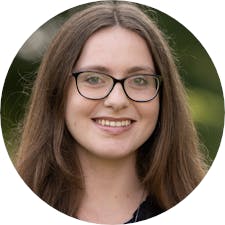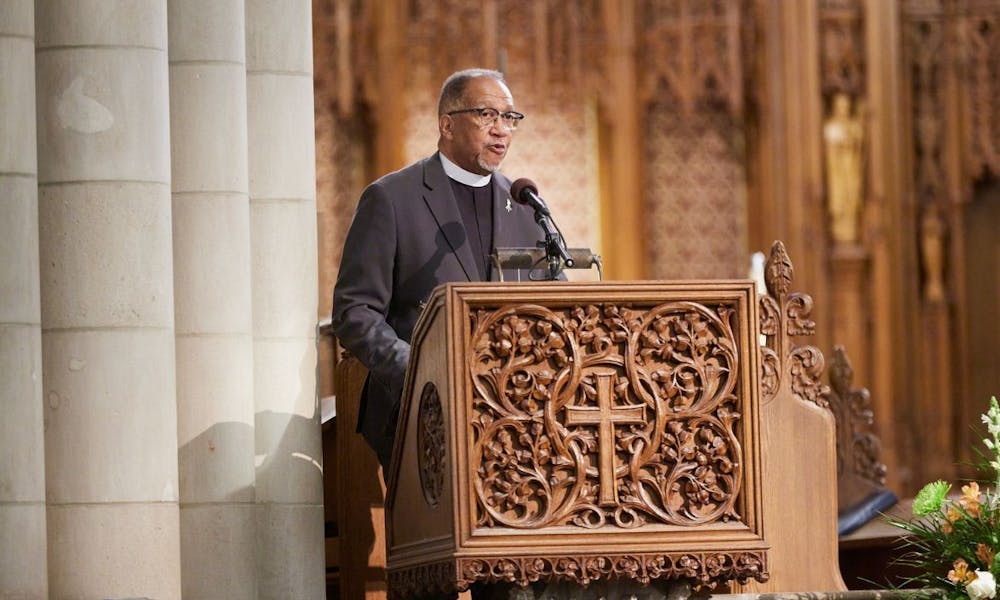Benjamin Chavis, Divinity School ‘80, gave a fireside chat Monday evening discussing the importance of education in improving diversity, equity and inclusion initiatives as Duke’s Environmental Justice and Racial Equity Fellow, the first to hold the position.
Chavis began his career in activism at 14 years old, when he served as the North Carolina statewide youth coordinator for the Southern Christian Leadership Conference under civil rights leader Martin Luther King Jr.
“I learned something about not only fighting for freedom, but about understanding why we fight for freedom,” Chavis said of the experience.
Chavis was also a member of the Wilmington Ten, a group of civil rights activists who were falsely convicted in 1971 of arson and conspiracy following a riot in Wilmington over school desegregation. Although their convictions were later overturned, they were incarcerated for nearly a decade, during which Chavis received his master’s of divinity degree from Duke.
Since then, he has taken on leadership roles in numerous justice-oriented organizations, including becoming the youngest executive director and CEO of the National Association for the Advancement of Colored People in 1993 and currently serving as president and CEO of the National Newspaper Publishers Association.
“People like us would not be here without all you’ve done to blaze the trail for us,” said Provost Alec Gallimore, who joined Chavis onstage at the Karsh Alumni and Visitors Center.
The event, which happened to coincide with Chavis’ birthday, was co-sponsored by a number of academic groups on campus, including the Office for Faculty Advancement, the Office of the Provost and the Office of Undergraduate Education.
In his year on campus, Chavis will draw on his extensive experience fighting for social justice to inform policies centered around issues of equity on campus. Part of this work includes co-teaching University Course 101, The Lived Experience of Race and Racism, with Jay Pearson, H. M. Foundation associate professor of public policy.
He noted that in spite of the currently heavily polarized political climate, he remains optimistic about the potential for a new generation to effect positive change.
“I think the youth today are the best generation: the most intelligent generation, the most gifted and the most talented,” Chavis said. “However, they also receive the most discouragement.”
Citing the connection between early low literacy rates and incarceration rates, Chavis identified making stronger investments in pre-K through 12 education, setting better examples of reading at home and monitoring the spread of disinformation through social media as possible pathways for success.
When asked about the role of higher education in protecting the democratic system, Chavis emphasized the need for a multicultural movement for change backed by institutional support.
“Duke University cannot afford to be silent in this debate,” he said. “Academics have to also be engaged in … the work and the study of liberation.”
Learning from the past is a key element of this work, according to Chavis. He referenced his experience participating in the Warren County, N.C. protests of 1982, commonly identified as the start of the environmental justice movement, as representative of the power of grassroots movements for change.
The protests were sparked by the illegal dumping of polychlorinated biphenyls — highly carcinogenic chemical compounds used in the production of electrical transformers — along a 210-mile stretch of North Carolina highways in 1978. Warren County, a predominantly Black, agricultural community, was chosen as the site for the toxic waste landfill to house clean-up efforts, despite the vast majority of residents relying on wells for drinking water.
“Why am I optimistic? Well, because I know the power when people organize, when women and children … lay down in the street in front of the trucks,” Chavis said.
Chavis again underscored the importance of education as a lifelong pursuit that, when paired with direct action and solidarity, forms the foundation of a more just and equitable world. Chavis referenced one of King's famous quotes, “The arc of the moral universe will bend toward justice.”
“But somebody’s gotta bend the arc,” Chavis said.
Get The Chronicle straight to your inbox
Signup for our weekly newsletter. Cancel at any time.

Zoe Kolenovsky is a Trinity junior and news editor of The Chronicle's 120th volume.

